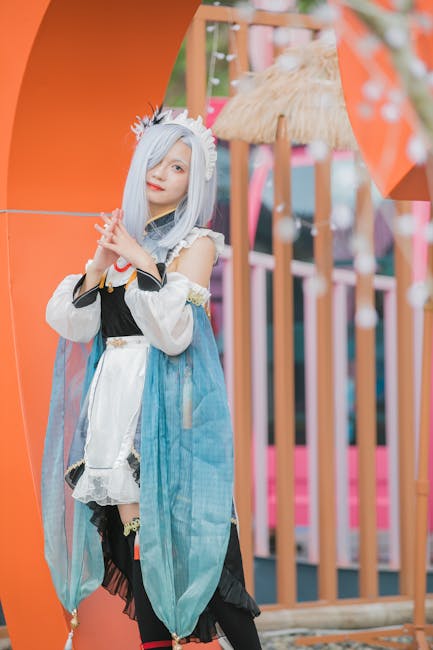Dark Souls: The Story of Hidetaka Miyazaki
Hidetaka Miyazaki s, life was dull Every day he d get up, go to work then go home. There was no variation, no adventure, and in fairness that wasn t a big deal, Hidetaka wasn t a big dreamer.
He did t have any great ambition to do something: earth-shattering, But then all that changed thanks to a video game In an instant a fire was lit within Hidetaka.
One game irrevocably changed the course of his life and led him to create an iconic video game.
Franchise In just ten short years, Hidetaka had gone from a traditional office, job to being the president of a games company and a household name around the world, And it was all thanks to a single burst of inspiration, Hidetaka Miyazaki loved stories.
He had always loved them From his earliest childhood.
He d been fascinated by books and would read anything he could get his hands on His appetite for the written word far outstretched his family s, meager budget, so instead he took to his local libraries borrowing as many books as he could and devouring the stories that Were found between their pages, Despite this enthusiasm, though, reading wasn t Hidetaka s strong suit A lot of the books, he read contained complicated, difficult words that he had t learned yet and Hidetaka hardly had time to slow down and check everything with a dictionary.
Sometimes he would sit and read an entire paragraph of text without having a single idea of what was going on in the story.
Big chunks of context would fly over his head and he d struggle to make sense of what was going on, But Hidetaka liked it.
This way He enjoyed the challenge of piecing the story together and he particularly enjoyed the ambiguity that his method of reading created.
He d fill in the blanks himself coming up with his interpretation of the story and flexing his creative muscles as he practiced reading. Hidetaka s favorite novels were fantasy stories.
He had a particular passion for Western European literature and enjoyed tales of brave knights in shining armor fighting terrible monsters.
Despite this love of storytelling, Hidetaka did t see himself as anything other than a casual consumer of media.
He didn t think he d be very good at writing, so he never pursued a career as a creator.
He didn t want to pursue any career.
He was content to simply fall into whatever role the universe would present him with Without any real idea of what he wanted to do.
With his life, Hidetaka decided to take the path of least resistance.
He studied social science at university and while he briefly entertained the idea of applying to work as a games developer, he settled on a vanilla job at Oracle, a respected IT company There he remained for years Day in and day out.
He would perform his humdrum job.
Never questioning his place or worrying about trying to achieve something. He had a decent salary and was happy enough with his life.
So there was no point in rocking the boat.
Then one day, Hidetaka s comfortable life was changed forever.
He met up with an old friend from university someone he hadn t seen in years and the two bonded as they caught up on old times, Remembering the times they d spent together playing video games.
While at college Hidetaka s friend recommended a new title that he thought might be a good fit, It was a story-driven game named Ico about a boy and a girl who have to solve puzzles to flee a shadowy enemy.
Hidetaka was bemused by the concept of the game and decided to give it a spin From the moment he started it up.
He was hooked.
The game was more than just a simple platformer.
It was an immersive, interactive story that took Hidetaka completely by surprise and showed him just how powerful video games could be Suddenly, for the first time in his life, Hidetaka felt a desire to create He wanted to make a game like this one.
He wanted to take. All of his favorite ideas, swords sorcery monsters, and demons populate a world with his creations.
He wanted to set players, challenges and reward them for their successes.
He wanted to create a game that would be as immersive and exciting as the one he was playing Unable to shake this newfound motivation to create Hidetaka quit his job at Oracle.
His colleagues were astounded.
This wasn t the kind of job that you retired from so early Most of Hidetaka s, fellow employees would remain at Oracle for the rest of their entire careers, But Hidetaka had a dream now for the first time in his life, He needed to see it through.
No matter the cost, As it turned out, the cost was pretty high By this point.
Hidetaka was too old for more schooling and there weren t many games.
Companies out there were willing to take a chance on an uneducated inexperienced new hire, Eventually, Hidetaka found his way to a company called From Software which was willing to hire him.
Although the pay was significantly lower than what Hidetaka was used to, He was willing to chalk this up as a minor loss, though, if he got the chance to make his own game, Not that he d be designing his own game any time soon, Hidetaka started In a very technical role, writing code for the Armored Core series of games, Despite his lack of experience, he soon proved himself as a valuable asset to the small company.

After all, while he didn t know much about game design, he was an expert at working, long hours on difficult or boring tasks. Eventually, though, Hidetaka caught wind of a game that another team in the company was working on, Demon Souls was running into difficulty.
What was meant to be an exciting medieval fantasy action game was little more than a mess with no solid prototype for the game.
The whole project was on the verge of being canceled, While everyone else wanted to stay as far away from Demon Souls as possible.
Hidetaka got excited, This was the chance he needed to make his dream game Sure the project seemed doomed to failure, but that meant that Hidetaka would have the freedom to try out risky ideas.
After some pleading and negotiation, Hidetaka was given control of the project and he set about giving Demon Souls the direction it lacked.
He threw out much of what had already been done on the project, starting more or less from scratch, with only the core concept remaining.
He filled it with challenging enemies and puzzles, making a game that could arguably be described as an acquired taste.
This was t a game where the player could charge around sweeping enemies up with a sword and saving damsels in distress.
Instead, it was a grueling old-school challenge.
A game that hearkened back to the tough-as-nails, titles of an earlier era of gaming before handholding and a low difficulty curve, became common practices. Excitedly Hidetaka sent the game off to the Tokyo Game, Showing eagerness to see what the general public made of his game.
It was a disaster.
Nobody seemed particularly interested in Demon Souls and very few of those who gave the game a try even made it past the character creation screen As it turned out.
Nobody could fall in love with Hidetaka s game when they were rushed for time.
On a showroom floor, Everyone had expected Demon Souls to fail, but the size of the failure still managed to take everyone by surprise Upon release the game only sold a meager 20 000 copies in its first week.
Hidetaka felt dejected.
He d given up everything for his chance to make this game, and he d poured his heart and soul into it.
He was surprised at just how few people cared about his work and he wondered whether any of it had been worth it.
There was no single moment when public opinion changed regarding Demon Souls, but there certainly was a shift over time Of those few early players.
Enough of them enjoyed what they experienced to want to tell their friends Slowly the game s popularity rose as players discovered, just how rewarding it was to finally take down an enormous foe or to decipher the messages left by other players to know how to overcome an Obstacle Eventually, the game s sales trickled their way to 100 000 units making for a far more respectable total Demon. Souls proved a moderate hit after all and Hidetaka felt vindicated, as he was rewarded with the chance to produce a follow-up game For his new title.
He drew even more heavily on the gothic stories that he d read as a child.
He took trips to Europe to experience the fantastic architecture and artwork that could be found in many major cities, and he used these to inform his decisions about the game world s design Wanting to expand beyond the fairly linear Demon.
Souls Hidetaka instead pushed for a large, interconnected world that players could explore for a seamless, fluid gaming experience And, of course, if players had felt that Demon Souls was challenging, they haven t seen anything yet Hidetaka liked the idea of making a game that pushed the player To succeed that couldn t be beaten in a single attempt, but required a lot of backtracking and replaying of challenging levels.
The player was up against difficult odds, and this meant a hard win.
Victory feels all the more rewarding If the player was willing to work hard.
Put in the effort and grind through the same challenging levels time after time, they d eventually be rewarded with success.
It was almost as if it were a metaphor for Hidetaka s life up to that point.
When Dark Souls finally released its reception, couldn t have been more different from that of its predecessor.
The game overtook the lifetime sales of Demon Souls in just a single week and went on to engulf popular culture on multiple continents, as gamers eagerly embraced it. The simple joy of a game that s far too difficult to beat the first time around There s a moral to this story, which fits very nicely with the theme of Dark Souls.
Sometimes you have to grind You have to chip away at your challenges.
One day, at a time, until you begin to see progress, This could take months or years, but if you’re willing to put in the effort eventually, you’ll produce results that you can be proud of.
Just like Hidetaka Miyazaki.
Your first attempt might not instantly prove to be the runaway success that you might dream of It s in these moments of perceived failure that we have to make a choice.
Do we give up at the first sign of defeat, Or do we keep trying? Do we fight on no matter how many attempts it takes until we ve beat our challenges, Or do we call it quits because our obstacles are too great to be overcome? It s easy to take the path of least resistance and avoid challenges that require our wholehearted commitment and effort.
But if we’re able to grit our teeth, push through hard times and pick ourselves up when we fail, the rewards will be all the more satisfying once we finally succeed.
.
Natural Synergy $47.⁰⁰ New Non-Invasive Alternative. To Electro-Acupuncture, Producing Astounding Results… Self-Application Is Easy, Rapid Response. You’re about to discover how both chronic and acute pain, skin conditions, migraines, and hundreds of ailments all stem from the same root cause. Yin Yang Ailments such as ➯➱ ➫ ➪➬ I want to give people an affordable option to kill pain naturally… without the fear of addiction. Treating the root cause of common diseases And reducing the need for harmful prescriptions that come with problematic side effects. So you’ll get everything for just $47.⁰⁰ That’s it.











